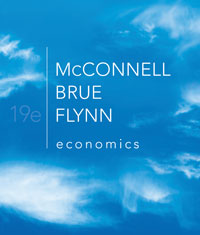
Economics (McConnell) AP Edition, 19th EditionChapter 20: Income Inequality, Poverty, and DiscriminationOrigin of the Idea
Gary Becker (b. 1930) developed the Taste for Discrimination model. The model came out of his 1955 doctoral dissertation, which was revised and published in 1957 under the title The Economics of Discrimination. Becker was born in the small coal-mining town of Pottsville, Pennsylvania. Because of his father's business dealings, the family moved to Brooklyn, New York, where Becker spent most of his childhood. After high school he enrolled in Princeton University. In a quest for financial independence, he completed his undergraduate degree there in economics in three years. In his final year at Princeton Becker was beginning to lose his interest in economics because he felt it did not address significant social issues. Fortunately he persevered, enrolling in the graduate program at the University of Chicago. There he studied under prominent economists such as Milton Friedman and Theodore Schultz, and renewed his interest in the discipline. In the 1960s Becker spent his time teaching at Columbia University and researching for the National Bureau of Economic Research. In 1970 he returned to the University of Chicago, where he currently serves as a professor of economics and sociology. In 1986 he served as president of the American Economic Association, and since the mid-1980s has contributed regularly to Business Week. In 1992 the Bank of Sweden awarded Becker the Nobel Prize in Economic Sciences "for having extended the domain of microeconomic analysis to a wide range of human behavior and interaction, including nonmarket behavior."(1) In addition to his work on discrimination, Becker has written extensively on the topics of human capital investment, time allocation, and family decision-making in areas such as marriage, childbearing, and divorce.
|  |















